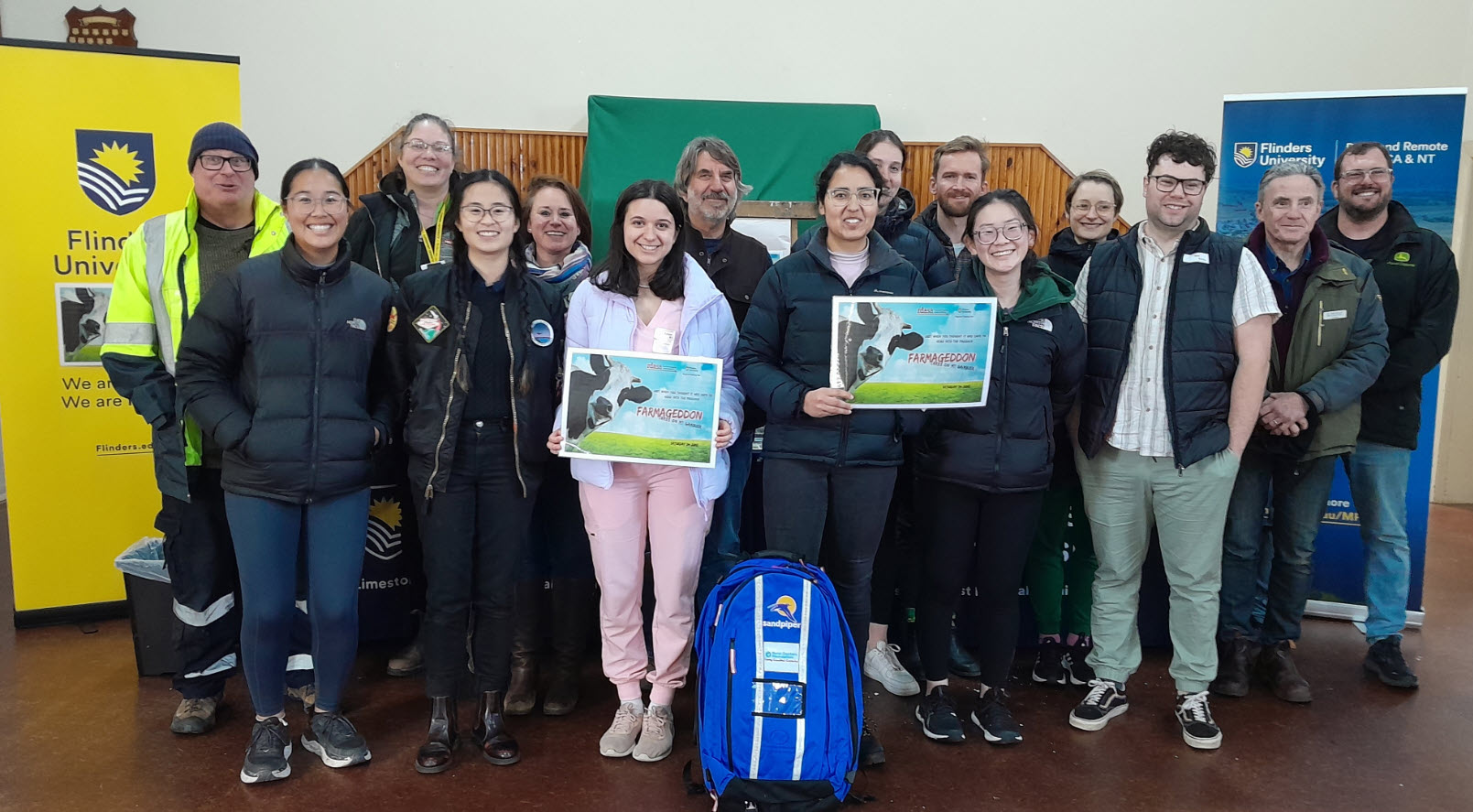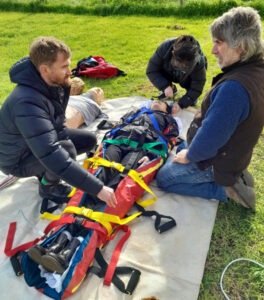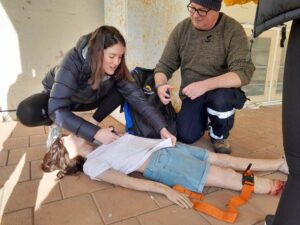
Last Saturday, Flinders University, Limestone Coast Regional Training Hub (LC RTH) assisted in bringing this innovative training opportunity to medical students and prevocational doctors – Farmageddon, an immersive, one-day, rural medicine event, organised and facilitated through the collaboration between the LC RTH and the Rural Doctors’ Association of South Australia (RDASA). Talks and rural emergency scenarios were run by rural clinicians from the Rural Emergency Responder Network. The day was designed to teach various emergency skills, learn more about careers in rural medicine and to help understand the wider impact of rural generalist clinicians from roadside through to rehab.
Dr Time Leeuwenburg, one of the facilitating clinicians commented, “Critical illness does not respect geography. In the case of a farm accident, a motor vehicle crash, or another calamity, rural patients deserve access to time-0critical interventions. Whilst we have excellent ambulance and retrieval services in Australia, they may be limited by distance (retrieval teams may take time to arrive) or resources (local ambulance may have limited resources). Rural Generalists are clinicians trained as the ’Swiss army knives’ of medicine. They often deliver high level emergency care in their local hospitals, as well as advanced skills such as anaesthetics, obstetrics as well as primary care. The Farmageddon day gives training to enable these clinicians to safely and reliably translate their advanced skills to the austere prehospital environment.
My station exposed participants to a challenging scenario, a paediatric patient in traumatic cardiac arrest after a fall from height, traumatic amputation of lower leg and severe chest and abdominal injuries. Usin g a simple C-ABC approach they learnt to rapidly prioritise the delivery of meaningful interventions (control of catastrophic bleeding, advanced airway management, decompression of the chest, splinting of limbs to alignment and early use of blood products) to deliver a bundle of care that can save a life in a short time frame (minutes).
g a simple C-ABC approach they learnt to rapidly prioritise the delivery of meaningful interventions (control of catastrophic bleeding, advanced airway management, decompression of the chest, splinting of limbs to alignment and early use of blood products) to deliver a bundle of care that can save a life in a short time frame (minutes).
These procedures are typically those delivered by a retrieval team such as MedSTAR….who would be hours away.
We aim to grow a national ‘rural responder network’ of trained and equipped rural clinicians to support rural communities for such incidents. Training by RDAA and equipment from Sandpiper Australia helps achieve this.
We, the facilitating clinicians, were all super impressed with the attitude and knowledge of the event attendees. We deliver this course to quite senior clinicians and to be honest the group who attended on weekend knocked it out of the park!
Comments from attendees were equally enthusiastic about their experience and learning:
“Farmageddon was a fantastic opportunity to build my confidence with equipment and scenarios I’ve never come across in the metro setting. Everyone involved was so enthusiastic and happy to teach so the whole day was a joy to be a part of. And the food was great too!” (Lucymarie Silverstri, 4th year Flinders medical student)
“What was equally as valuable as the realistic learning stations (two of which were outdoors – it doesn’t get more rugged than that!) was the open-forum group discussions over a well-catered lunch. We had a down-to-Earth chat about rural generalism, including the logistics, the lifestyle and how to look after each other, which reinforced that rural generalism really could be the future of medicine. I feel fortunate to have learned from some very experienced rural doctors who volunteered their time today.” ( Dr Vienna Tran, LCLHN Resident Medical Officer)

